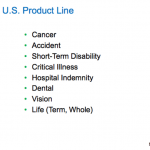The retail sector has been underperforming this year owing to the digital transformation in shopping and consumers’ online binge that has curbed foot and mall traffic. As such, most retailers, including those with a big-box focus, are struggling to compete with e-commerce channels and are being forced to close their doors or file for bankruptcy.
Given weak fundamentals including slower spending and persistent low inflation, the National Retail Federation downgraded the retail sales forecast for this year. It now expects sales to increase 3.2-3.8%, down from the previous forecast of an increase of 3.7-4.2%. The downward revision points to some degree of consumer caution amid volatility in the financial markets.
As such, investors have turned wary on the retail sector but might want to look at the broad consumer discretionary space.
Why Broad Consumer Discretionary?
The economy has been on a solid growth path buoyed by an impressive labor market, increase in wages and higher consumer spending. U.S. GDP expanded 3% year over year in the second quarter, up from the previous reading of 2.6% and represented the fastest pace in more than two years.
Additionally, consumers also appear more optimistic with the Consumer Confidence Index, as indicated by the Conference Board, surging to the second-highest level since late 2000 in August. Per the University of Michigan index, consumer sentiment was higher in the first eight months of 2017 than in any year since 2000, which was the peak year of the longest expansion in U.S. history.
The upbeat data underscores the economy’s strong fundamentals and consumers’ enthusiasm to spend more. These will likely boost spending, which accounts for more than two-thirds of U.S. economic activity, in the coming months. Further, the Fed is expected to follow a dovish path for the rest of the year, infusing further optimism into the economy. This is because cheap financing will continue to entice consumers to buy more homes and avail auto loans, thereby giving a boost to the consumer discretionary sector.
If these weren’t enough, the consumer discretionary has a solid sector rank in the top 31%. While household appliance, and hotels and motels are hot, consumer products, shoes and retail apparel as well as cable television are also in demand.
Given sluggish retail sales expectation but a brighter outlook for the broad space, investors can take advantage of the strong trends through the following ETFs. All these funds offer broad exposure to the space and have a solid Zacks ETF Rank #2 (Buy) with a Medium risk outlook, underscoring its potential to outperform in the months ahead.
Vanguard Consumer Discretionary ETF (VCR – Free Report)
This fund follows the MSCI U.S. Investable Market Consumer Discretionary 25/50 Index and holds 377 stocks in its basket with heavy concentration on Amazon (AMZN) at 12.3%. Other firms hold less than 6% of assets. Internet & direct marketing retail, cable & satellite, and movies & entertainment are the top three sectors accounting for a double-digit exposure each. VCR charges investors 10 bps in annual fees while volume is moderate at nearly 67,000 shares a day. The product has managed about $2.2 billion in its asset base.
S&P SmallCap Consumer Discretionary Portfolio (PSCD – Free Report)
The fund targets the broad consumer discretionary space by tracking the S&P SmallCap 600 Capped Consumer Discretionary Index. It holds 113 securities in its basket that are well spread out across components as each security holds less than 2.6% of the assets. Within the sector, specialty retail takes the top spot at 25.1% of the total, followed by double-digit allocations to hotel and restaurants, household durables and auto components. The product has attracted $60 million in AUM while sees light volume of just 3,000 shares per day. The ETF charges 29 bps in annual fees.
Guggenheim S&P 500 Equal Weight Consumer Discretionary ETF (RCD – Free Report)
This ETF offers equal weight exposure to the companies in the consumer discretionary sector by tracking the S&P 500 Equal Weight Consumer Discretionary Index. It holds 84 securities in the basket with key holdings in specialty retail, media, hotels restaurant & leisure, textile apparel & luxury goods, and household durables. The fund has amassed $77.4 million in its asset base while trades in a light volume of 7,000 shares a day on average. It charges 40 bps in annual fees from investors














Leave A Comment